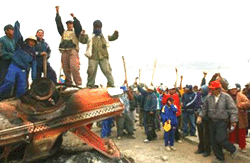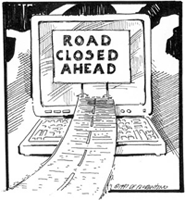
Gaza water supplies dangerous low
GAZA STRIP – Dangerously low drinking water reserves, dilapidated decontamination facilities, and a nearly dry water table are the warning signs of a looming crisis in Gaza, according to Shaddad al-Atili, water and ecological affairs advisor to the Palestinian Authority. "We are heading toward an ecological catastrophe," he told Agence France Presse last week, citing as one reason Gaza’s rapidly growing population of 1.3 million people, 900,000 of them refugees.
Rain alone isn’t enough to sustain the Palestinian territory, which receives between 1.5 billion to 1.9 billion cubic feet of rainwater annually but consumes about three times that amount, Atili says. "Besides,




